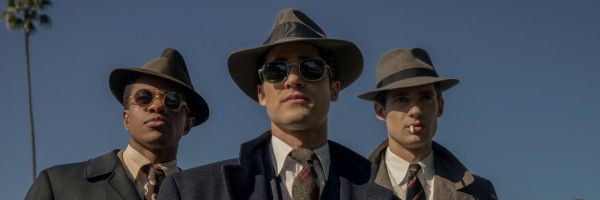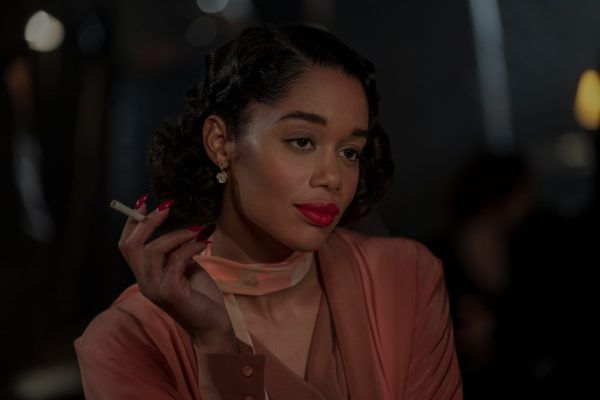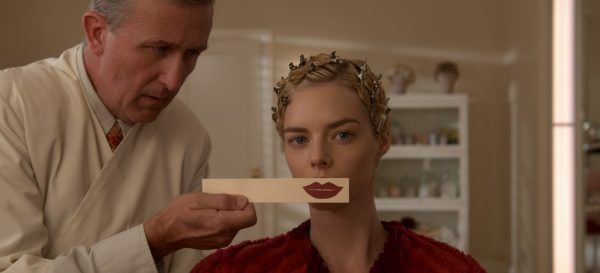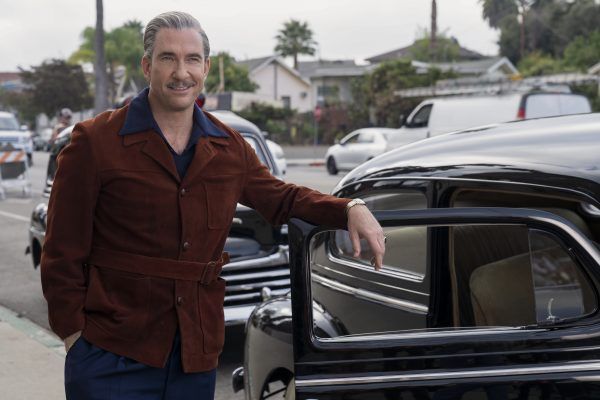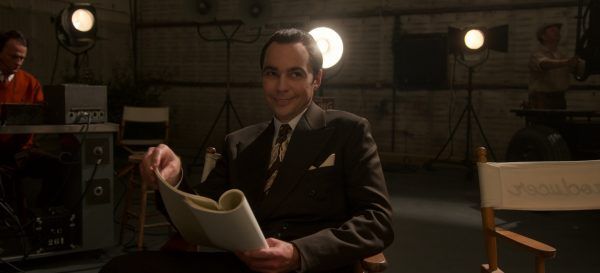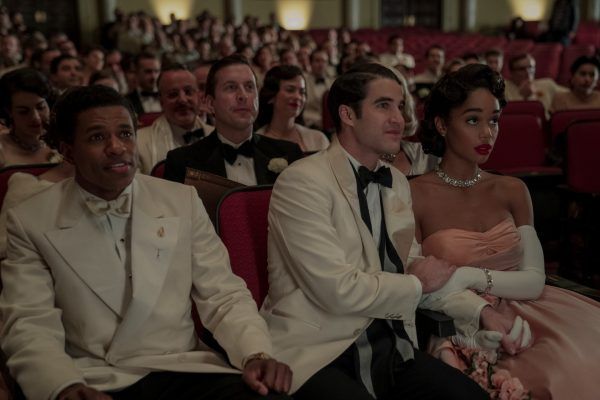Progress and equality in the entertainment industry, just like in every other area of society, has moved frustratingly slow. The industry is overwhelmingly dominated by white heterosexual men, resulting in a system in which white heteronormative stories are considered “normal” and stories from any other viewpoint are considered risky or potentially offensive. Even this past year, during a time many people to be the most progressive period in the history of moviemaking, Hollywood still struggles with equal representation. (For example, the producers of Star Wars: The Rise of Skywalker famously made a huge deal about featuring LGBTQ characters, only to have those two women be unnamed background characters who share a brief kiss during the film’s finale.) The film industry is still resisting the move towards equal representation in 2020, even though the demand for that push has been loud and clear.
But what if breakthroughs had come earlier? What if the march towards equal representation in film had begun 70 years ago? Netflix’s new miniseries Hollywood, from the titular town’s busiest producer Ryan Murphy, imagines an alternate history 1940s Los Angeles in which a handful of iconoclastic men and women come together to make a film that challenges society’s accepted norms, with a story about all the marginalized people trying to find a way for their voices to be heard. Part period drama and part fantasy, Hollywood simultaneously juggles the heightened magical earnestness of a Frank Capra film and the harsh seedy realism of Curtis Hanson’s L.A. Confidential. Consequently, the end result is an uplifting, hopeful story that frequently feels somewhat at odds with itself.
Hollywood is very much an ensemble, but we begin the series focused on Jack Castello (David Corenswet), a military veteran who just recently moved to Los Angeles with his wife to pursue a career in acting. Despite spending his days hanging around studio lots vying to get picked for work as an extra, he’s not having any luck, and things are getting desperate. Then, Jack has a chance meeting with Ernie (Dylan McDermott), an Old Hollywood entrepreneur running a service station that prides itself on its handsome staff. He recruits Jack, who quickly realizes that the service station is just a cover for Ernie’s actual business – a high-class brothel servicing the Hollywood elite. Jack’s first client is Avis Amberg (Patti LuPone), a former actress and the wife of powerful studio head Ace Amberg (Rob Reiner). Just like a classic ensemble piece, Jack winds up getting connected with every other character in the series through his work at Ernie’s service station – he recruits Archie (Jeremy Pope), an aspiring screenwriter who blind-submitted his script to Ace Studios hoping that it will be put into development before the executives realize he is Black.
Archie’s script is read by up-and-coming director Raymond Ainsley (Darren Criss), who is newly under contract with Ace Studios alongside his girlfriend Camille Washington (Laura Harrier), a Black actress competing for leading roles against Claire Wood (Samara Weaving). In addition to possessing the accepted Hollywood standard of beauty, Claire also happens to be Ace and Avis Amberg’s daughter. Meanwhile, Archie begins a relationship with another aspiring actor, Rock Hudson (Jake Picking), a kind man with middling talent trapped in a toxic contract with predacious agent Henry Wilson (Jim Parsons). These are only a handful of the main players in Hollywood’s story web, but through luck and coincidence they all manage to link up to create Meg, a movie loosely based on the tragic story of Peg Entwistle, about a struggling Black actress trying to become a star amid the injustice of the racist entertainment industry.
Like all of Murphy’s work, the production of Hollywood is impressive. The series perfectly captures the look and feel of Los Angeles as it was in the late 1940s, with old model cars cruising up and down streets that haven’t yet felt the crush of interstate traffic. Ace Studios is a believable proxy for the major studios of the day, with its high-gated backlot perfectly echoing Paramount or RKO. The attention to detail in everything from the set decoration in Jack’s dingy apartment to the high-waisted men’s suits to the conservative fashion sported by Avis to the understated yet stunning dresses worn by Camille and Claire create a believable version of post-WWII Hollywood that feels authentic. That authenticity helps us believe the events of Murphy’s alternate timeline as they begin to go into motion, allowing us to accept the story as something that could’ve actually happened, had all the right people taken action.
Of course, the quality and impressiveness of the show’s production doesn’t mean much if the actors inhabiting that space aren’t pulling their weight. Murphy has assembled a cast that is more than up to the cast, with a few notable standouts among the overall excellent ensemble. Dylan McDermott in particular perfectly embodies the energy of a likeable Hollywood scoundrel, a mischievous mix between Clark Gable and Timothy Dalton. McDermott has always had fun with meaty character roles, and he is clearly having a blast as the devilishly charming Ernie. Patti LuPone is another gem as Avis, a woman seemingly resigned to her role as a has-been until circumstances reignite her passion and grant her a new position of power and influence. Darren Criss, teaming back up with Murphy after winning an Outstanding Lead Actor Emmy for his role as Andrew Cunanan in their previous collaboration American Crime Story: The Assassination of Gianni Versace, is somewhat underutilized as Raymond Ainsley. However, Criss is good at projecting genuine enthusiasm and bright-eyed earnestness as he fights to include diversity and equal representation in his film.
Laura Harrier exudes movie star status as Camille, putting an interesting spin on acting tropes of the time while simultaneously displaying the more modern naturalistic acting qualities that would eventually become the norm. She’s so clearly the right choice for the lead role in Raymond’s film that we immediately share her frustration with the unjust system that threatens to pass her over. Reiner has fun as Ace, a caricature of old-timey Hollywood moguls who eventually reveals a surprising gentleness. Similarly, we initially dismiss Samara Weaving’s Claire as a spoiled Hollywood brat, but she gradually displays an unexpected level of depth and empathy. And Holland Taylor and Joe Mantello share some of the best scenes of the series as Ace Studios executives Ellen Kincaid and Dick Samuels, two industry veterans who recognize the potential they have with Meg to change the national perception of what voices should be allowed to be represented and heard.
Jim Parsons turns in an against-type performance as the odious Henry Miller, the personification of casting couch sleaziness who uses his power and influence to prey on hopeful young actors. Henry is a viciously cruel abuser who uses his connections with the Hollywood underworld to force his way aboard Meg as a producer. Parsons is cold and calculating to the point of being reptilian, and his performance is simultaneously difficult to watch and impossible to look away from. However, despite the excellence of Parsons’ portrayal, his character is the best example of the bizarre tonal problem that prevents Hollywood from being a great series instead of just a good one. The show’s view of transactional sex and power dynamics yo-yos between the reality of abuse and an oddly romanticized version of it. Henry is vile, and he is finally taken to task by Rock in a gripping scene towards the end of the series, but other than that he receives little comeuppance. Not only that, but Henry is partially redeemed in almost the very next scene.
The reality of Henry and his status as an abuser is difficult to reconcile with the show’s rosier fairy tale aspects. Granted, the abuse of the power dynamic, and specifically its role in coerced transactional sex, is a very real element of the entertainment industry, and it would be impossible to tell an authentic story about a paradigm shift in Hollywood without addressing it. However, Murphy’s narrative condemns Henry’s actions with little quantifiable consequence while simultaneously painting a favorable picture of Jack’s sexual relationship with Avis, Camille’s relationship with Raymond, and Rock’s relationship with Archie. All three of those relationships directly result in professional gains – Jack lands his role in Meg thanks to his intimacy with Avis, Rock becomes involved because he is dating the screenwriter (in addition to Henry’s influence), and Camille convinces Raymond to change the script to put her in the leading role literally while they are having sex. Not to mention Ernie’s overall role as a charming matchmaker bringing so many of the characters together via his service station brothel. The show seems to condemn the casting couch system at the same time as it posits that maybe the casting couch isn’t so bad, as long as you sleep with a “good” person. It’s a bizarre tonal tug-of-war that is ultimately the series’ biggest misstep.
Hollywood is a celluloid fairy tale, a wonderful daydream about what might have happened if the right people had been in the right place at the right time to topple the sexist, racist, homophobic monolith of studio politics nearly 8 decades ago. Leaning further in the direction of a Capra flick than the hyper-violent revenge fantasy of Quentin Tarantino’s revisionist Hollywood tale, Murphy’s miniseries is about using your power to raise up others, and taking chances to push for change from within. It’s a wholly unique story that might not land with everyone – some viewers may find it hard to accept the show’s whimsical heightened reality along with its R-rated elements, and the show’s earnestness could be mistaken for naivety. But there can be wisdom in naivety, and I found it impossible not to smile with genuine joy every time the show’s many pieces fell so perfectly into place. It’s an extremely satisfying watch with an invaluable message, whether you’re in the entertainment industry or not – use your voice to help those whose voices aren’t being heard.
Rating: ★★★★
Hollywood is now streaming on Netflix.

